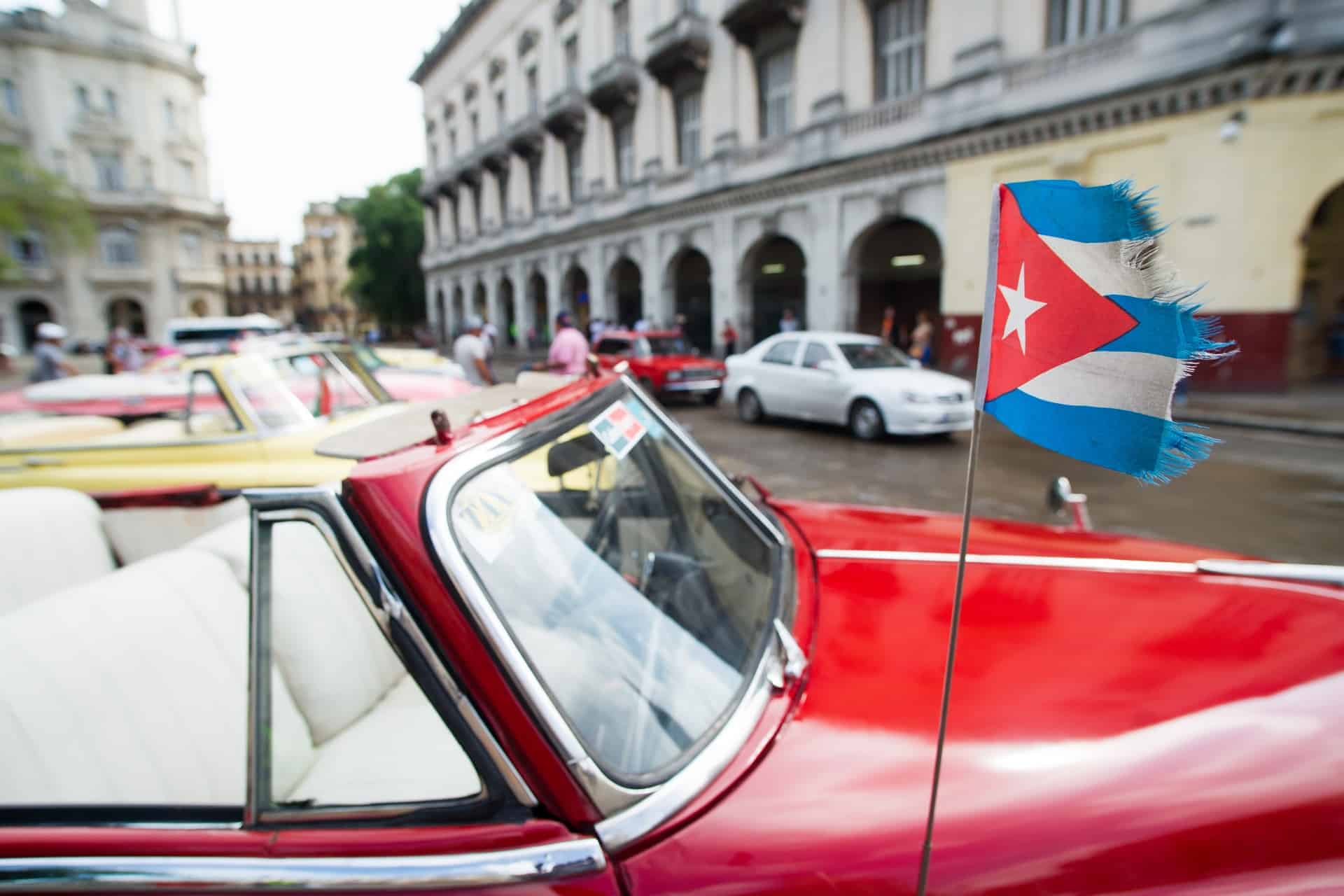Cuba on Monday blamed a US “policy of economic suffocation” for unprecedented anti-government protests, as president Joe Biden backed calls to end “decades of repression” on the communist island.
Thousands of Cubans took part in demonstrations Sunday, chanting: “Down with the dictatorship,” as President Miguel Diaz-Canel urged supporters to confront demonstrators.
The anti-government rallies erupted spontaneously in several cities as the country endures its worst economic crisis in 30 years, with chronic shortages of electricity and food.
The only authorized gatherings in Cuba are usually events of the ruling Communist Party, but according to the data journalism site Inventario, a total of 40 demonstrations took place Sunday.
Police used tear gas to disperse crowds, and at least 10 people were arrested, while officers used plastic pipes to beat protesters, AFP journalists witnessed.
Diaz-Canel on Monday blamed the uprising on the United States pursuing a “policy of economic suffocation to provoke social unrest in the country.”
Cuba has been under US sanctions since 1962.
From Washington, Biden urged the government in Havana to “hear” its people’s demands.
“We stand with the Cuban people and their clarion call for freedom and relief from the tragic grip of the pandemic and from the decades of repression and economic suffering to which they have been subjected by Cuba’s authoritarian regime,” Biden said in a statement.
“The United States calls on the Cuban regime to hear their people and serve their needs at this vital moment rather than enriching themselves,” he added.
No ‘interference’ please
Mexico and Russia on Monday warned against using the unrest as a pretext for foreign interference.
Mexico’s President Andres Manuel Lopez Obrador warned against an “interventionist” approach to the unprecedented Cuban protests, and offered to send aid.
Russia, for its part, warned against “outside interference in the internal affairs of a sovereign state.”
US-Cuba relations have been particularly fraught since then-president Donald Trump reinforced the blockade following an historic but temporary easing of tensions under Barack Obama between 2014 and 2016.
The tougher measures, left unchanged by Biden, and the effects of the coronavirus epidemic contributed to Cuba’s economy declining 11 percent in 2020.
Public anger in the one-party state has been growing, driven by long food lines, worsening power shortages and a critical shortage of medicines.
The country of 11.2 million people is experiencing its toughest phase of the coronavirus pandemic, and on Sunday reported a new daily record of infections and deaths.
On Sunday, several hundred protesters marched through the capital Havana chanting, “We want liberty,” as a heavy military and police deployment kept watch.
Social media showed scenes from protests around the country, but mobile internet — only introduced in 2018 — was largely cut off on Sunday afternoon.
‘Into the street, revolutionaries!’
Diaz-Canel delivered a combative television address Sunday, saying: “The order to fight has been given — into the street, revolutionaries!”
“We call on all revolutionaries of the country, all communists, to go out in the streets where these provocations occur… and to face them in a decisive, firm and courageous way.”
The protests had started in the town of San Antonio de los Banos, a town 30 kilometers (20 miles) southwest of Havana, where several thousand protesters, mainly young people, took to the streets.
One local, on condition of anonymity, told AFP she was there because she was exasperated by “the situation with electricity and food.”
Security forces arrived soon after, and the president later visited the town surrounded by party activists as residents heckled him, according to videos posted online.
Candido Abrines, a pro-government protester, told AFP he was standing his ground so “capitalism will never come back here again and (so) that these mercenaries paid by the Empire (the US) will never again take our streets, first they have to kill us all.”
Government supporters also held counter-demonstrations in Havana.
An Associated Press video journalist was assaulted by some of them, and an AP photo journalist was injured by the police, the news agency said.
As US National Security Adviser Jake Sullivan cautioned Havana against “any violence or targeting of peaceful protesters,” thousands of Cubans and Cuban-Americans held support rallies in Miami.
“These young people today have finally said ‘Enough is enough and we’re going to do what our old folks couldn’t do’,” Cuban-American Yanelis Sales told AFP.
“Cubans, we are here with you from the United States.”
Diaz-Canel has been president since 2018, succeeding Raul Castro, who took over from his brother who led the country for five decades from 1959.






